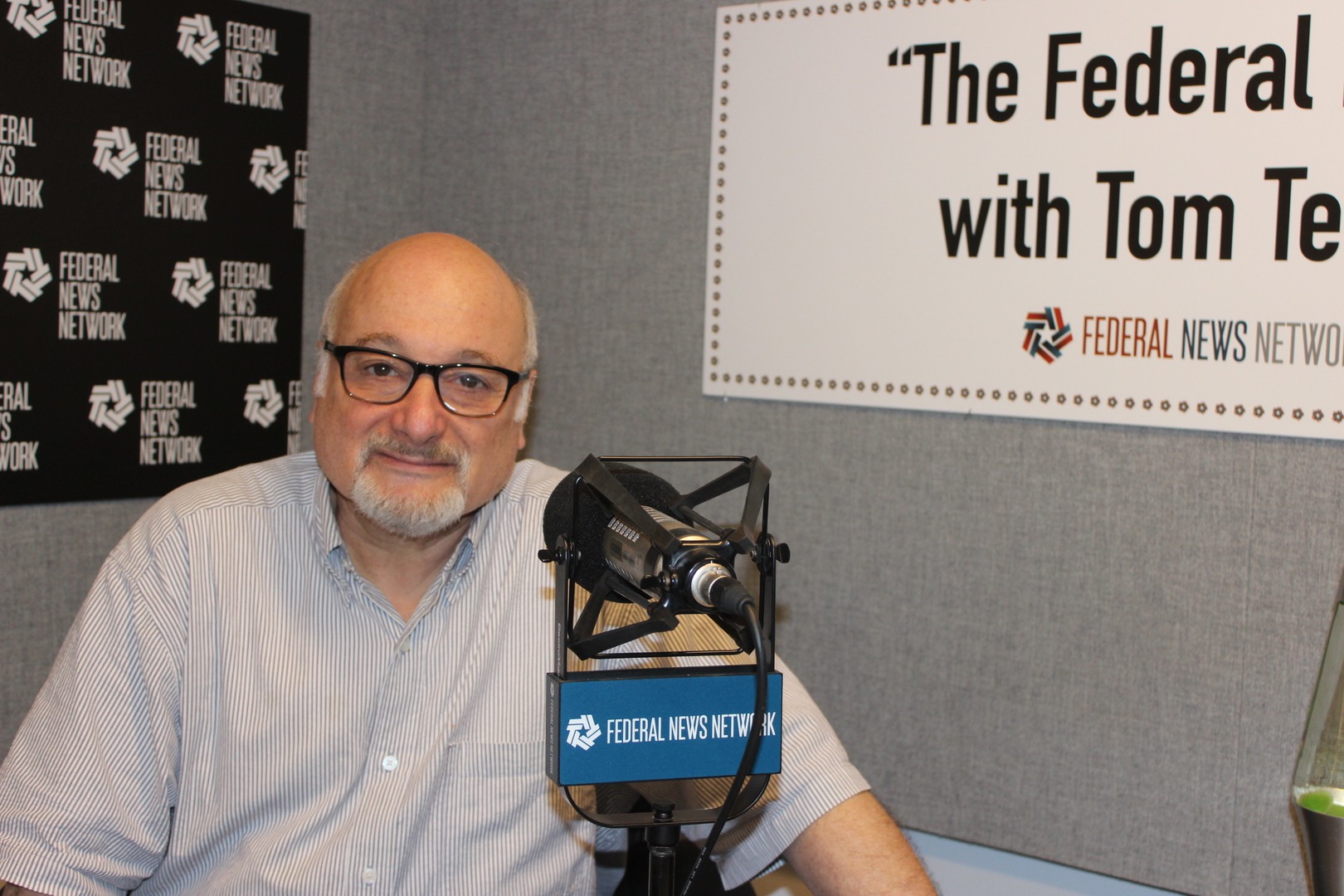VHA teams up with University of Maryland on prostate cancer research
The Veterans Health Administration is teaming with the University of Maryland on a research project. Its goal is to establish new surveillance methods to track...
Best listening experience is on Chrome, Firefox or Safari. Subscribe to Federal Drive’s daily audio interviews on Apple Podcasts or PodcastOne.
Gentlemen, listen up. Prostate cancer is no fun. But it takes many forms. Some will get you fast. Others grow so slowly you’ll die from something else. Now the Veterans Health Administration is teaming with the University of Maryland on a research project. Its goal is to establish new surveillance methods to track those with low-risk prostate cancer. With what’s going on, the chief of urology for the VA Maryland Healthcare System, Dr. Mohammed Minhaj Siddiqui, joined Federal Drive with Tom Temin.
Interview transcript:
Tom Temin: Dr. Siddiqui, good to have you with us.
Dr. Mohammed Minhaj Siddiqui: Thank you for having me.
Tom Temin: Tell us what you’re doing here. How does surveillance tie into those with low risk cancers?
Dr. Mohammed Minhaj Siddiqui: We’ve actually embarked on the national project to improve the way that active surveillance is practiced in the United States, and improve not only the way that is practiced, but improve how often it is adapted. Tom, just as you mentioned, in your introduction, the issue is prostate cancer is the most common cancer in men, one in seven men will be diagnosed prostate cancer in United States, but 90% of men who get the diagnosis of prostate cancer will ultimately live their life and die of something else.
Tom Temin: So then if you have this type of low level or low danger one, the implication is you still need to check from time to time, and that’s where the surveillance comes in.
Dr. Mohammed Minhaj Siddiqui: You’re absolutely right, exactly. Historically, in the past, before the community understood the cancer better, you were diagnosed with cancer, you get treatment, everyone’s getting treatment, and then it became realized, this is 15 years ago now, that too many people were getting treated and treatment for prostate cancer is not without its own complications. And so they started doing these clinical trials, and it became clear that if you properly select people with low risk cancer, you can keep a close eye on them. And that’s called active surveillance. Active Surveillance is not the same as ignoring the cancer or walking away from it. It’s a very engaged proactive process where you are closely monitoring the person usually doing blood tests and imaging and biopsies every few months.
Tom Temin: And it sounds like you have a good confluence of conditions to test this one, you’re looking at something that could be possibly used as a new surveillance technique for many types of cancers, not just prostate. But being the VA, you have a mostly male population of all ages to test. So how will this all develop?
Dr. Mohammed Minhaj Siddiqui: Prostate cancer is a major issue within the VA population. Many people who are veterans happen to fall in the age and gender demographic that prostate cancer peaks, and so this is an issue of major interest within VA patients and VA providers alike. The project that I’m involved with is actually not only to just look at prostate cancer, but to improve prostate cancer active surveillance. And so while active surveillance has been around for 10 plus years now, it’s still under utilized. Only about 30% of people who should be getting exosomes do actually get exosomes. A lot of people still undergo treatment, even though they didn’t necessarily need it. And there’s been a lot of changes in the way we manage prostate cancer, there’s new imaging abilities with MRI, there’s new tests like genomic biomarkers, and it’s just not clear how to use it. So we are putting together a conference to bring together physicians and patients and advocates to discuss what should be the research priority going forward to improve the adaptation of active surveillance, make it something that people are more comfortable with using, and also bring active surveillance protocols up to date with all the recent kind of technology advances that have taken place in the last five years.
Tom Temin: So it sounds like you have the opportunity then to solve a lot of issues. One, you could probably lower the cost of surveillance, which is a real issue for VA, make it easier on patients, and also maybe have better medical outcomes. All three of the above, fair to say?
Dr. Mohammed Minhaj Siddiqui: I think all the above is the goal. And what I would say is at the stage we are at now, what has happened is that there was a lot of activity in this space of active surveillance, maybe 10-15 years ago, and there was all these clinical trials and research studies done. And then the research studies have kind of slowed down. But there’s been all these changes, and we need to develop well designed collaborations and studies to update what we’re doing. And so we’re trying to engage researchers and patients to lay the foundation for the next generation of these studies. And we want the VA to be very much in the mix of providing insights as to what is important to people and what should we be focusing on as we do the next generation of studies.
Tom Temin: We were speaking with Dr. Mohammed Minhaj Siddiqui, he is the VA Maryland Health Care Systems chief of urology. And what do patients tell you, because veterans tend to express how they feel about the Veterans Health Administration? And what’s involved now with surveillance, how is it done now? Is it too frequent or is it invasive? Do you have to take biopsies and that kind of thing, which is no picnic?
Dr. Mohammed Minhaj Siddiqui: You’re absolutely right. Some of the kind of hesitation that patients have about active surveillance is that the typical routine is to do a PSA blood test every three to six months. And then every year, we will typically do a biopsy, we may also do a MRI kind of mixed in with all of that. And fundamentally, many people are uncomfortable with the thought that they’ve been told they have cancer, but they’re not going to do anything about it. It takes a lot of explanation and coaching to make someone comfortable with it. And then some people will never be comfortable with it. But the challenge becomes when there’s misperceptions or there’s sometimes people hear about family members who got prostate cancer and die from prostate cancer, and not all prostate cancers are the same, but kind of conveying all these kind of subtle things does cause sometimes a lot of confusion and a lot of concern about active surveillance.
Tom Temin: And are there other cancers that have equal characteristics? That is to say, some of them are almost something you don’t really need to worry about, but just surveil. So in other words, can this actually learn in this research be applicable to other types of patients?
Dr. Mohammed Minhaj Siddiqui: Yeah, I mean, that’s a great question. I think there are a couple. Fortunately, for men who are diagnosed prostate cancer, on the spectrum of cancer, it is probably one of the less aggressive cancers. There are other cancers that you also can typically will do well from and just do surveillance for, some of the some of the skin cancers, thyroid cancer sometimes it’s considered like that. Every cancer is a little bit unique, so I think that the way to translate advances with one versus another is a little challenging, but I think the general idea that not every cancer needs to be treated right away all the time. It is something that is increasingly something that people are getting comfortable with. And I think that’s a good thing. Because I think that we as a community, as a medical community, we’re potentially causing some harm by over treating people in the past without realizing that that’s what we were doing.
Tom Temin: Yeah, especially depending on the region of the body where you’re working. So you will have this conference, when does that take place, and then what are the steps beyond that?
Dr. Mohammed Minhaj Siddiqui: The conference is going to be, it’s a virtual conference. And so the listeners on this program can actually sign up for it. And it is going to be December 13, and December 16.
Tom Temin: At the conclusion of the conference, then what will your next steps be in this program?
Dr. Mohammed Minhaj Siddiqui: The conference would be, as I mentioned the virtual conference, it’ll be the afternoon for those two days from 12 to 4 on Monday and Thursday. And what we will be doing is that the conference will be a mix of patients and doctors and advocates, and it will be running in a way that we will be gathering feedback from people. And you don’t have to be an expert on this topic. It’s helpful if you are someone who’s familiar with it, like you’re either dealing with it yourself or just have some kind of exposure to active … prostate cancer, because it will be asking for your opinion on what is important to you as a prostate cancer patient, that’s who we’re looking for. And what we will be doing will be gathering information about what should we be focusing on in terms of research, in terms of quality of life outcomes, and the way that we do active surveillance, like what matters to you what doesn’t matter to you. And over the course of two days, the first day we’ll be just gathering a lot of information, and then we’ll synthesize it. And on the second day, we’re going to discuss with you what we found based on what you all told us. And then we’ll be asking you for feedback on that to make sure that we’re getting it right. The whole thing is going to be structured in a way that we really actually are going to make sure we want to hear from patients, we’re not going to let just academics dominate this, this is really meant to be a way to bring these communities together and have a conversation and let patients help dictate the direction of future research.
Tom Temin: Alright, so veterans need apply then.
Dr. Mohammed Minhaj Siddiqui: That would be wonderful to have veterans, and it’s simply a registration. If this is something of interest to you, and it’s something that you’re familiar with, and it’s something you’re dealing with in your life, then come register. That’s all there is to it. There’s not even an application it’s simply just register and show up and we would just be delighted to have you.
Tom Temin: Dr. Mohammed Minhaj Siddiqui is chief of urology for the VA Maryland Healthcare System. Thanks so much for joining me.
Dr. Mohammed Minhaj Siddiqui: Thank you so much. Thank you for helping us get the word out.
Copyright © 2025 Federal News Network. All rights reserved. This website is not intended for users located within the European Economic Area.
Tom Temin is host of the Federal Drive and has been providing insight on federal technology and management issues for more than 30 years.
Follow @tteminWFED






